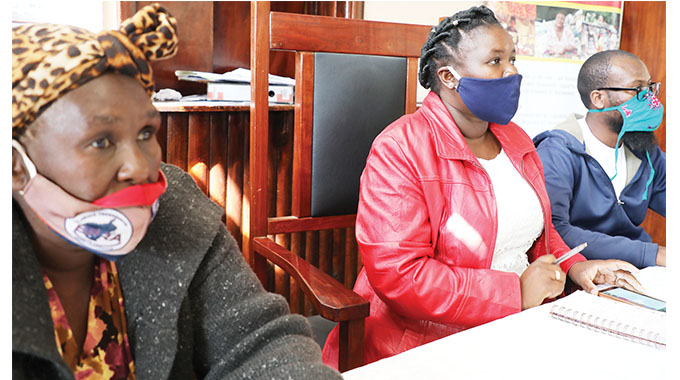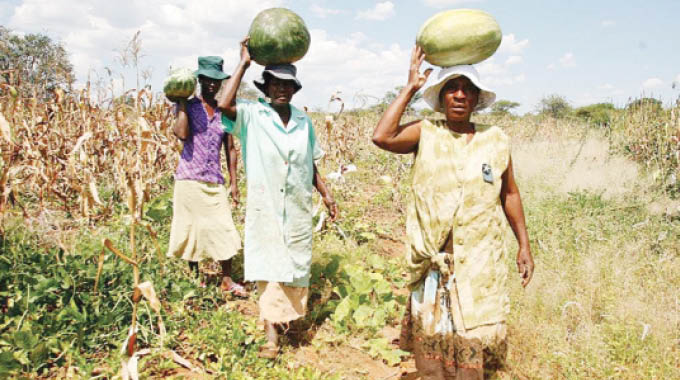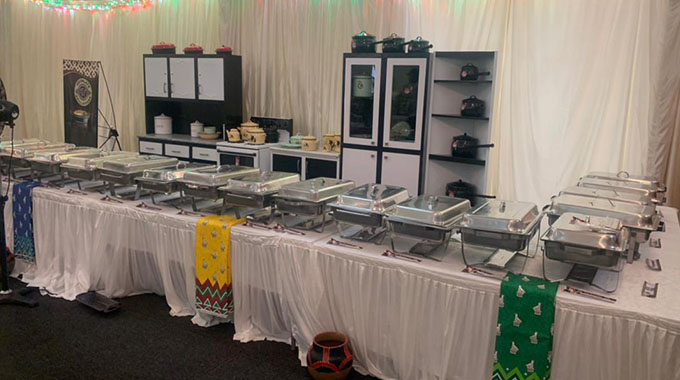Why do we wait for our artistes to blossom elsewhere to support them?

Melissa Mpofu, Showbiz Editor
Why do we appreciate our talent when it leaves the country? Why do we wait for the world’s approval to notice the ability and greatness within us?
These are questions that arose earlier in the week as people congratulated South Africa-based Mutare-bred musician Sha Sha (real name Charmaine Shamiso Mpambiro) after she did the country proud by becoming the first Zimbabwean to scoop a BET Award.
Prior to this award, those who did not like Amapiano, a music genre that is being popularised in South Africa, had no idea who this young lady was, yet she was making waves in the neighbouring country, even earning herself the name Queen of Amapiano.
But, her “own” people were not following her and could not care less. It was only after people were rallied to vote for her to win the BET that they started taking interest in her with some hesitant as they felt that she was just being overrated.
And when she was announced as the winner of the BET: Viewers Choice Best New International Act award on Monday, Zimbabweans were very proud, taking to the social media streets to make noise about the victory.
Those who have had to leave Zimbabwe in search of greener pastures related well with Sha Sha’s victory. But, they felt let down by locals who they said must learn to support their own talent while they still have it in the country instead of waiting for it to blossom elsewhere then appreciate it.
Mbo Mahocs, a TV personality who for the longest time, tried to penetrate the local arts scene, but got a lukewarm response forcing her to relocate to South Africa, only got a resounding reaction and loads of support when she appeared on etv’s top series, Scandal! last year. Upon seeing her on the series where she acted as Chichi, Zimbabweans went wild with those who did not watch the show taking interest in it.

Mbo Mahocs
From there, people developed an interest in Mbo and each time she comes back home, people ask for selfies with her, something they rarely did when she was still in Zimbabwe.
Commenting on this lack of appreciation and support Mbo said: “I find it sad that we start to applaud and appreciate our own after other people outside our country have done so. Yet all the while, talent is under our noses and we choose to fold our arms and not support.
“If we don’t support our own, who will? Why should we wait for the world’s approval to notice the ability and greatness within us?” quizzed Mbo.
The actress who is also a presenter said relocating to South Africa was the best decision she ever made as she has grown significantly as an artiste.
“I’m glad I took that step. I feel like I’m in the right place to explore as an artiste,” she said.
Australia-based musician and music producer, Audius Mtawarira who has been very vocal about the country’s failure to support its own talent said it is high time locals start embracing their own.
“What’s in your backyard is always going to seem trivial and what’s in someone else’s plate is always naturally going to appear better and worthy of more respect, when it’s actually not the case at all.
“If we were to take our individuality more seriously and give it kudos and support local artistes ourselves, whether they’re in Zimbabwe or abroad, we’d go far and be able to expose our own artistes to the rest of the world,” Mtawarira said.

Shasha and Audius
He said instead of appreciating and supporting their own, locals seem to have developed a tendency of rubbishing artistes.
“In Zimbabwe, there seems to be a really pessimistic approach to artistes’ contributions. On social media for example, people are so hungry to criticise and pick on all things negative to do with people that are out there representing their country.
“Some of the comments are so derogatory and disheartening to the individuals,” said a concerned Mtawarira.
Another challenge locally is that people have generally become content with consuming works from the “known” artistes, making it difficult for up-and-coming artistes to prove their worth as people generally are not willing to try out works from the less known.
That likely explains why the likes of Iyasa and Sandra Ndebele are usually invited each time event organisers from outside Bulawayo want to include artistes from Bulawayo on their programme because they are the most known.
There are, however, many other talented artistes people could try out like Novuyo Seagirl, Nate, Bolamba Culture Birds and Ngoma Ingoma among others.

Seagirl
How can the less known become known if people, especially show promoters, do not give them the platform and the general public which is now consuming entertainment online, switches pages the moment people they do not know appear?
This lack of support locally is what has forced many artistes with a lot of potential, to leave their respective cities and subsequently, the country, in search of greener pastures. Most who have left have gone on to do very well and many are now forces to reckon with.
“I wish we could blur lines that stop us from supporting each other. That’s one of the obstacles blocking us from growth,” Mbo said.
So good are some of the artistes pursuing their careers outside the country that some have even forgot they are Zimbabweans. Talk of Bekezela, Berita, Leroy Gopal and Tongayi Chirisa.

Berita Khumalo
During a conversation with top musician Ammara Brown last year, she boldly mentioned that if one feels less appreciated in their zone, they must not shy from relocating to a place where they feel their talent can be appreciated.
And indeed, Ammara has not restricted herself to the capital, Harare as she from time to time goes to South Africa to explore other avenues there. It is through this exposure that she got a stint as a judge on the Amazing Voices Pan-African singing competition.
Sadly though, some Zimbabweans who have made it in other countries, have had a tendency of disassociating themselves with the country, something that has made locals have an attitude towards those outside the country.
Mbo said she would never do such a thing as she is proud of where she comes from.
“One who doesn’t know where he comes from, doesn’t know where he’s going. Being born and bred in Bulawayo is part of who I am and what makes me. My mother is South African but I remain a Zimbabwean,” she said.
Whether disassociating oneself from the country has been done to protect one’s career, it has certainly irked locals who now prefer to support those who are locally based more than those who are outside the country. South Africa-based dancehall musician Buffalo Souljah has for years been raising the country’s flag high by winning various international music awards but when he came to perform in Zimbabwe a few years back, locals were quite cold towards him opting to support locally-based Zimdancehall artistes. They went on to trash Buffalo Souljah’s music saying they could not relate to it simply because it had not been produced locally.












Comments